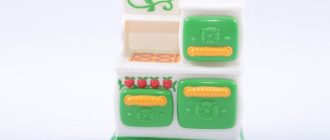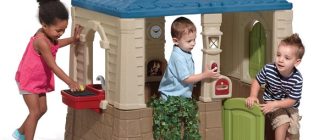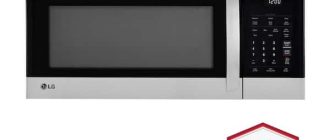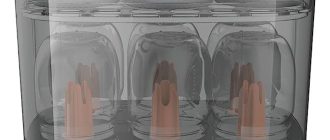NOTE: Every type of appliance outfitted with a computer circuit board (most appliances these days!) should be equipped with a surge protector. Surge protectors ($20 average cost) can prevent computer circuit board damage ($250 average coast.)

Your Home Appliance Resource
Tips for your Range, Stove or Oven
- Clean your cooking appliance often with non abrasive cleaning products.
- Be gentle with buttons, knobs and switches. If they are worn, replace them.
- Update the look of your stove and make it run more efficiently with new drip pans and surface elements.
Tips for your Microwave
- Metal items (like cooking pots, utensils or aluminum foil, etc.) should never be placed inside a microwave.
- Clean your microwave often, inside and outside. A good way to refresh the interior of your unit is to run a container measuring five cups of water with a bit of lemon juice for 5 minutes. After running it, let the water sit in the microwave for 5 minutes more, then wipe down the interior clean.
- Always cover food when cooking it in your microwave.
- Use only microwave safe dishes and containers when cooking in your microwave.
Tips for your Refrigerator and Freezer
- Keep your refrigerator fresh, clean and clear of drips and spills as well as old and expired food.
- Keep food tightly covered to avoid odor and clogging of the defrost drain.
- Don’t overstock your appliance, especially near the vents and around the airflow – overflowing units have to work a lot harder to keep the temperature set.
- Keep the temperature in mid range setting so the food stays cool, but your unit works efficiently.
- Frequently clean the lint from the condenser coils on the back or underneath your appliance – this will allow free air flow and your unit to work trouble free and more efficiently.
Tips for your Dishwasher
- You do not need to pre-rinse food off plates and glasses.
- Use less dishwasher detergent – only a small teaspoon or a tablet are needed; excess detergent can gum up the inner parts of your dishwasher causing problems and repairs.
Tips for your Garbage Disposal
- Never run your garbage disposer unit dry – always use plenty of cold water.
- Avoid grinding slippery and stringy foods with a lot of fiber – these tend to clog up the machine.
- To clean and refresh your garbage disposer, place a cupful of ice and a few lemon wedges in the opening and run with lots of cold water.
- If your garbage disposer jams, find the reset button and free it. This can save an unnecessary repair visit.
Tips for your Washer
- Don’t overload your washing machine – overloading causes unnecessary wear and tear and your clothes won’t be as clean as they can be.
- Use only HE detergent with your front load washer.
- Use only recommended amounts of detergent – too much detergent coats the inner workings of your washing machine with sticky soap scum casing problems and repairs.
- Be gentle with doors, knobs, switches and buttons. Rough treatment will cause unnecessary damage and need for replacement.
- Before placing laundry in your washer, check pockets for stray objects – objects can cause a lot of harm to your machine, like perforated water pumps, clogged motors and other damage.
- Many front load washers have been known to develop mold, mildew and odor. To prevent this from happening, check the front gasket opening for stranded articles like socks, etc. and clean the area regularly. Also, leave the door slightly open to allow the machine to dry out between laundry sessions.
- If your washing machine already has an odor issue, a cleaning solution like Affresh can help. Run your washer once with no clothes – with three tablespoons of Affresh. To keep the odor problem from returning, place a tablet of Affresh in your laundry once a month as a preventive.
Tips for your Dryer
- Before every load, clean out the lint screen and your dryer will work better and more efficiently.
- Keep the vent duct on the back of your dryer clear of lint and other accumulating items and debris.
- If your electric dryer runs but has stopped heating, check the circuit breaker before calling a technician. When the breaker is half tripped, the dryer can stop heating.
Visit for Home Appliance Parts, Appliance Repair Videos, Repair Help, Maintenance Tips and Information and more













